'Do it yourself': Unions switch from Democrat allegiance to running for office
For members of unions, there's something disarming about a fellow member knocking on their door, even if it's to canvass for a political candidate.
Doors open a bit wider. "Uh-huh" becomes "Oh really?"
When Democratic City-County Councilor Kristin Jones canvassed in 2019 with a firefighter or United Auto Workers member by her side, she found she was invited inside homes and to union meetings ― something she rarely experienced during her previous decade soliciting votes for Democratic campaigns.
And Jones ― whose husband is a longtime UAW member and who herself is now a member of the American Federation of State, County and Municipal Employees ― credits her slim 257-vote victory in a split district in 2019 to the support of organized labor.
"You cannot put a price tag on going door to door with a member of a union to talk to another member of the union," she said. "That just gives me credibility with them. 'She’s ok, she’s one of us.'"
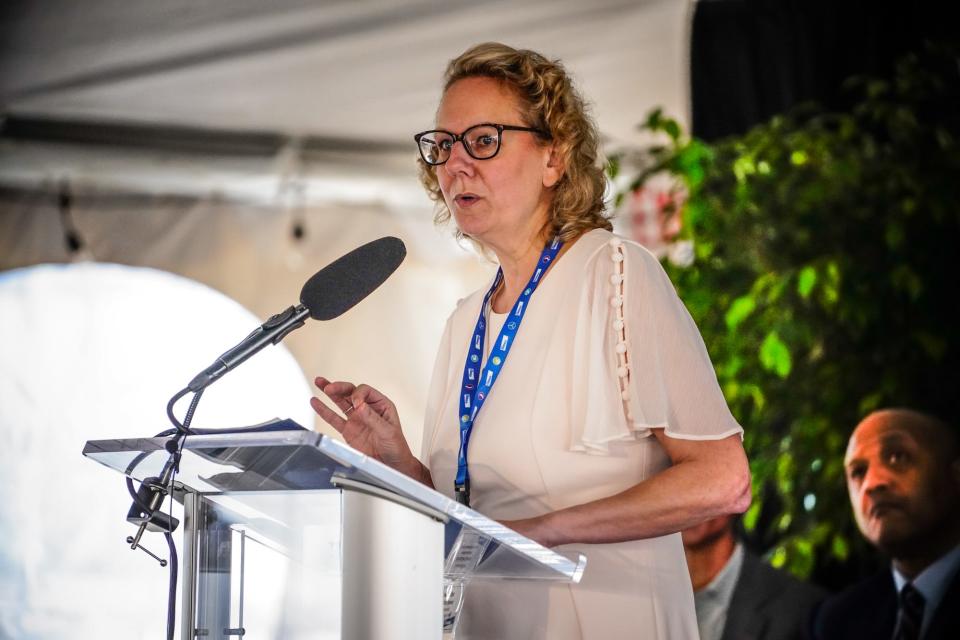
Unions have long helped decide elections, often in favor of Democrats. But the coordinated effort pairing Jones with union members was not a partisan one: She was part of the first class of an Indiana AFL-CIO program called Path to Power, in which unions recruit, train and hit the streets for their own members running for office ― including "household" members, like Jones ― regardless of political party.
In a state with a weakened, superminority Democratic party, unions can no longer rely on the party and its candidates to get pro-labor policies across the finish line. They have to rely on themselves, as well as make friends on both sides of the aisle.
It's a trend that's been building since at least the 1990s, when unions started to feel abandoned by Democratic leaders like former President Bill Clinton for negotiating labor-unfriendly trade deals. Rank-and-file union members have been drifting away from the Democratic party on non-labor issues, too, like gun ownership and abortion, for decades.
Indiana has seen some shifts in union allegiance in the decade since the General Assembly passed right-to-work legislation in 2012 and then redrew district maps that gave Republicans the supermajority in the Statehouse. Contributions to the Indiana Democratic Party's central committee from unions and union-affiliated PACs these days are about half what they were in the decade prior.
So, unions are doubling down on a candidate-centered approach, and for some, that includes supporting Republicans, particularly those with strong pro-labor platforms.
"We had to come up with something for the survival of our values and our principals," said Brett Voorhies, president of the Indiana AFL-CIO, describing Path to Power. "If you want something done right, you got to do it yourself. And that’s exactly what I’m doing ― I’m putting people in office that can do it right, because we’re representing ourselves."
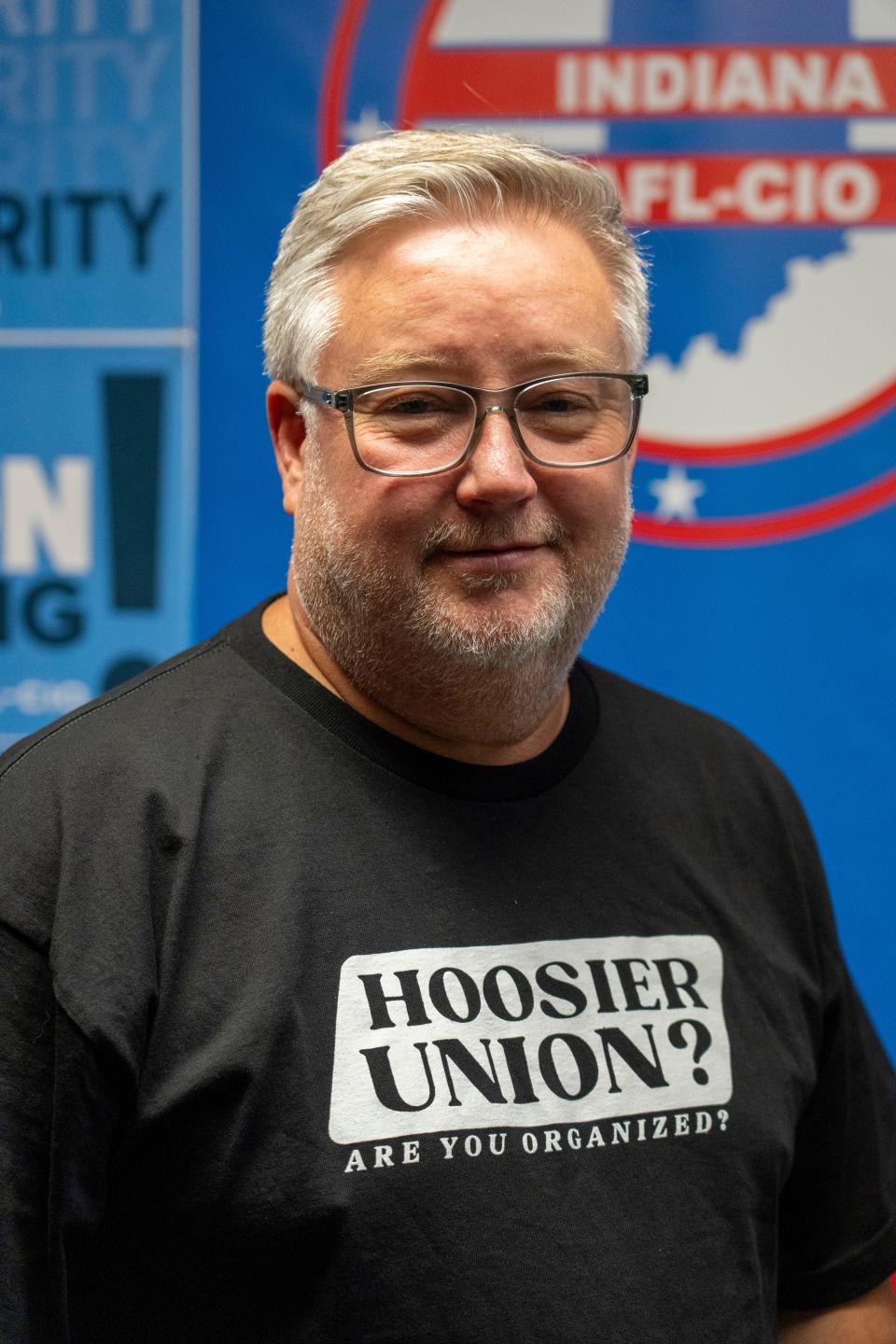
How union support for the party has changed
When Danny Ernstes joined the UAW in 1993, the political climate in Indiana was very different.
The statehouse was roughly half Democrat, half Republican. Democrats controlled the governor's offices. Races in many districts were competitive.
In Ernstes' eyes, Democrats were the only friends of labor.
"It was just kind of drilled into our head: Democrat, good; Republican, bad," he said.
And, crucially, they had the ability to win elections. Putting boots on the ground for Democratic candidates proved a good investment for unions. That's no longer always the case.
Unions in Indiana still heavily support Democratic candidates for office. But contributions to the party apparatus have dropped off.
Whereas unions and union-affiliated PACs gave more than $500,000 a year to the state central committee prior to 2010, in the last decade, annual contributions have hovered around $250,000.
The UAW Region 3 Victory Fund, the PAC representing the UAW region that comprises Indiana and Ohio, stopped donating to the Democratic committee entirely after 2014.
"We're tired of losing, we're tired of throwing money away," Ernstes said.
The Indiana AFL-CIO's donations to the party have dropped precipitously, too: from tens of thousands a year prior to 2010, to just $2,000 last year.
On the flip side, some unions, like those in the construction trades, have ramped up their donations to Republican candidates in recent years.
The Indiana State Pipe Trades Association, for example, gave nearly $20,000 in 2022 to Republican candidates like State Sen. Kyle Walker and State Rep. Cindy Ledbetter. The Pipe Trades and the Indiana AFL-CIO endorsed Walker in his Senate race.
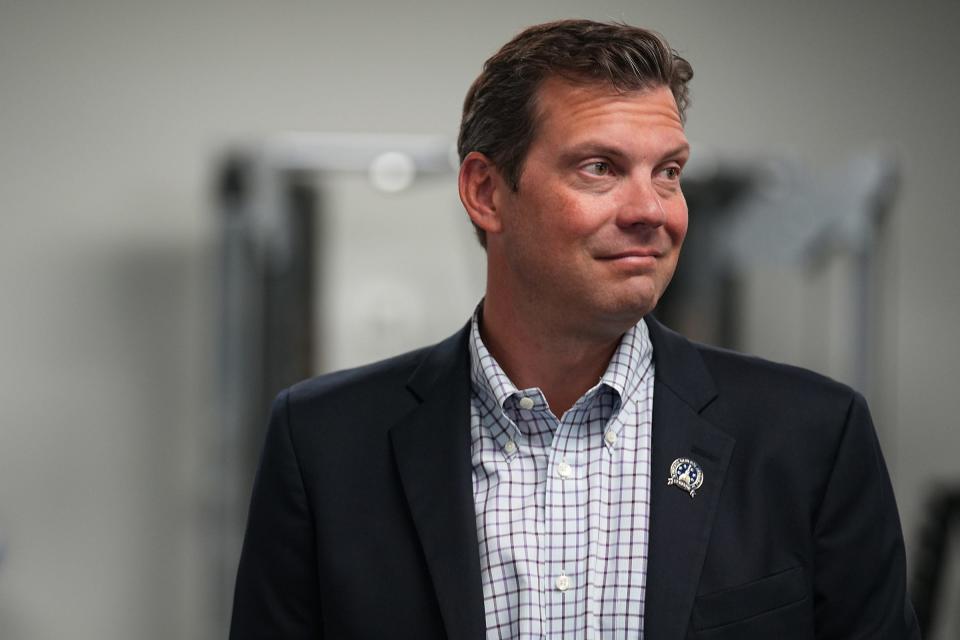
In 2022, for the first time, the Indiana-Kentucky-Ohio Regional Council of Carpenters' donations to Republicans outpaced its donations to Democrats.
Over the past two years or so, Jerome Stanford, Indiana political director of the carpenters' union, has been making a concerted effort to get to know members of the Republican caucus, he said. For him, it's a numbers game in two ways: making smart investments with his members' money, and listening to the views of his members who, these days, are about half Republicans themselves.
By approaching individuals on both sides of the aisle, the carpenters open themselves up to making more friends, more lawmakers who could carry the ball on issues affecting wages and working conditions. Plus, the statehouse today has very few lawmakers who were involved in the right-to-work battle.
"So my job isn’t to hold a grudge because the Republican party brought right-to-work to the state," Stanford said. "My job is to educate the lawmakers who we are, what we do, how we benefit the country, and then let the lawmakers decide if they want to help us or attack us."
Path to Power
In small manufacturing communities like Muncie, Democrats running for office used to be synonymous with labor. They were often union members themselves.
But Muncie's major factories have closed, corporate interests have bled into both political parties nationally, and culture war issues have come to define partisan lines. The rank-and-file feel their interests have been pushed to the side.
"Now you do need a program that is deliberately re-organizing," said Mat Davis, a statewide organizer with the AFL-CIO.
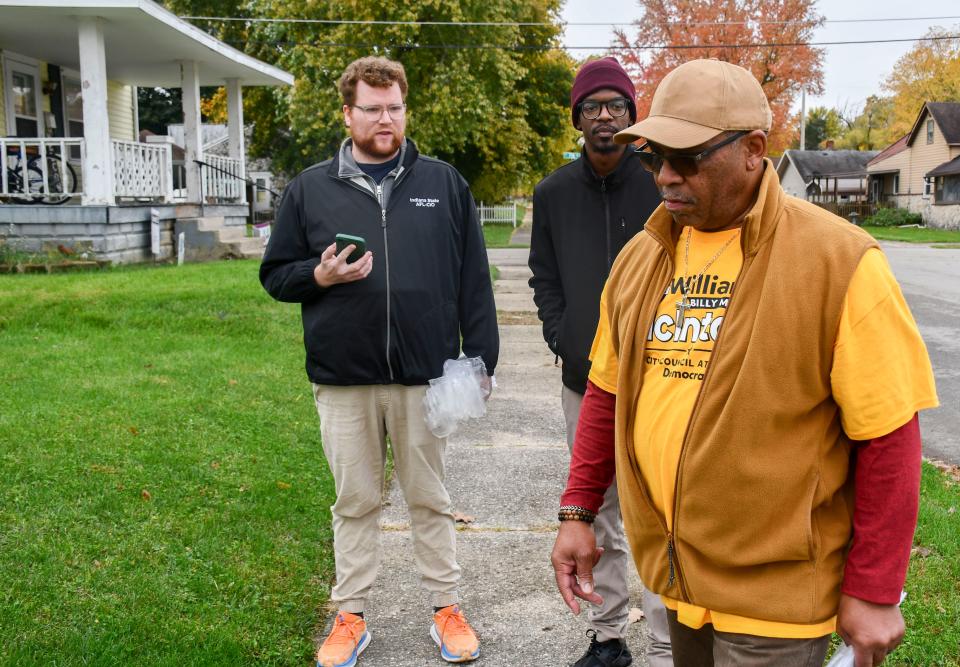
The AFL-CIO has used union membership data to map out every precinct in Indiana for the Path to Power program. The federation recruits and trains members to run in precincts where they know there is union density ― votes they can turn out.
Knocking on doors in Muncie on a Saturday in late October, Davis specifically visited UAW members to tell them about a candidate running for an at-large city council seat, William MacIntosh, who is also a UAW member.
Davis didn't bring up abortion or crime. He brought up collective bargaining, because Delaware County commissioners had recently rescinded collective bargaining.
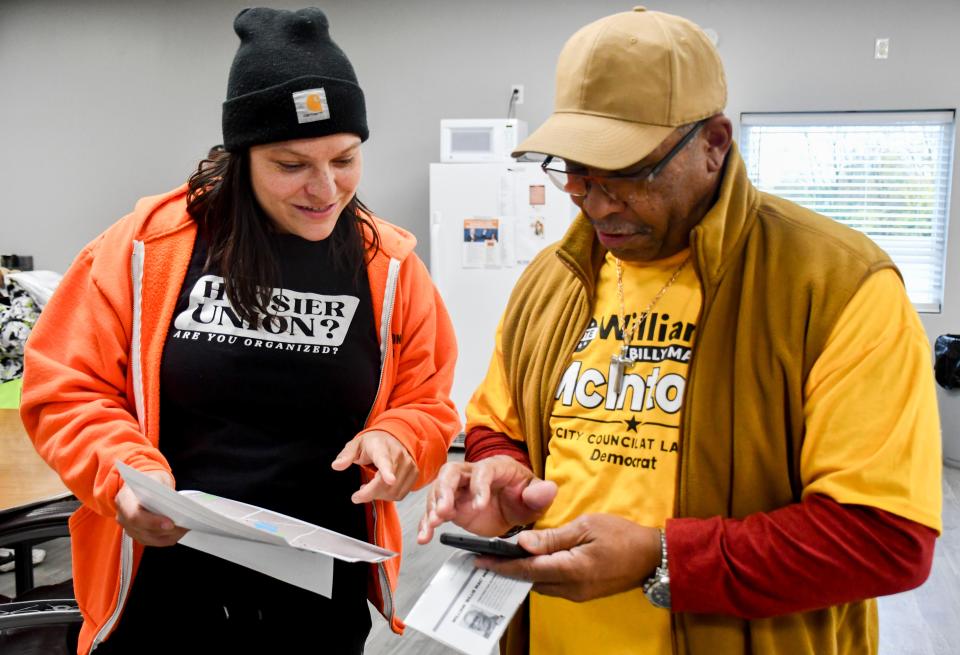
Path to Power is growing. From running 13 candidates in 2019, the program this year had a record 32 candidates running in local offices across the state, three of whom are Republicans ― also the most-ever. Twenty-five of those candidates were successful on Nov. 7.
Some labor organizers say this kind of ground game is sorely missing from the state Democratic party. This perception, in part, explains the drop in donations to the party, they note.
"How do you invest in something that doesn’t have a plan, path to victory?" Voorhies said.
Stanford said his members in the carpenters union take note of Republicans' strong stances and legislative victories in areas like abortion and "parental rights" in schools. The overturning of Roe v. Wade came from decades of organizing by Republican activists; Republicans in the Indiana Statehouse were the first to act immediately following the Supreme Court decision, with their own state law restricting abortion. Democrats were powerless to stop it. Some members want to side with the winner.
"When they look at the Democratic party, they don’t see that action plan," Stanford said. "They see the Republican party on offense, and they see the Democratic party on defense."
Indiana Democrats struggle to maintain morale in the party, even for union members who are staunch supporters, like the American Federation of Teachers of Indiana.
President GlenEva Dunham said it feels like she needs to give her members a motivational speech every December post-election.
"There is some work to be done in the Democratic party, in terms of morale," she said. "That’s anything when you get handed loss after loss after loss."
Part of the problem is the party doesn't have the kind of high-profile, fundraising juggernauts running for statewide offices like they used to in former Sen. Joe Donnelly and former gubernatorial candidate John Gregg.
Gregg had massive support from labor, raising more than $2.5 million from unions. This year's Democratic candidate for governor, former schools superintendent Jennifer McCormick, has raised about $335,000, about a tenth of which came from unions.
Building a bench
What unions are doing makes sense to state Democratic Party chair Mike Schmuhl, who took the helm in 2021.
The electoral math being what it is, he understands they have a business decision to make.
"They have their own goals and priorities that they are striving for, that they're working toward. And for each one that's just different. And so I respect that. I understand that," he said. "And I also think that you know, in our opinion, in a supermajority atmosphere, that unions have to have a certain posture when it comes to forming relationships with the Statehouse."
Unions are building their own bench, so to speak. For a long time, Ernstes said, they felt like the Democrats put the onus on unions.
"We can't be relied upon to be their bench program," he said.
Regardless of how Path To Power affects the state party, Schmuhl said he supports the program ― and any program that tries to get people to step up and run for office.
"It's just a challenge to get people to run for office in this day and age," he said. "If you have a family, you have a good job, politics right now is really kind of dark, depressing, really vitriolic. ... The more people doing it in our state, I think the better because I think we need to bring more balance back to Indiana in every level."
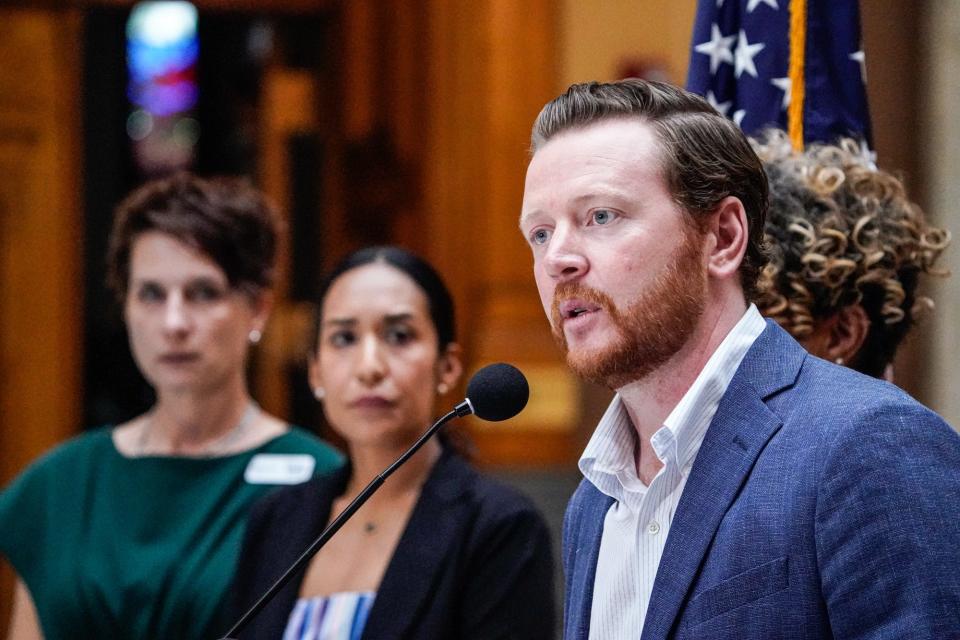
The Democratic party's relationship with labor has changed over the decades, but it's still the party that cares about unions' values, Schmuhl said ― like preserving the ability to collectively bargain, earn a livable wage and keep a secure pension.
But the party needs to do a better job of communicating that it cares about economic issues and is not just focused on social and cultural issues, he said.
Republicans, on the other hand, have made gains among the working class through issues like gun rights and abortion and by painting Democrats as elite and out of touch. Former President Donald Trump performed well among union members in 2016, and support remained strong through 2020, even against vocal labor supporter President Joe Biden.
In other words: Democrats feel Republicans have lured away many working class voters.
"We certainly have lost a great deal of the messaging war on that front," said Kip Tew, a former state Democratic Party chair. "There’s a feeling among rank-and-file that Democrats don’t fight for their economic well being. We’ve been painted as elitists and university professors."
It's hard to build an extensive ground game with only a half dozen staff at the state Democratic party. Battleground states like Michigan or Wisconsin get far more financial assistance from the national party, and have dozens of statewide organizers, compared to Indiana's three.
Elections: 2024 primaries look like 'tipping point' for Indiana Republican's future
As for the party's plan for the future, Schmuhl places hope in a handful of suburban mayoral offices and statehouse seats, like the House seats being vacated by retiring Republican members Jerry Torr and Donna Schaibley. The most immediate plan is to "take a bite out of the supermajority," he said.
"Unions want to back a horse that can win," he acknowledged. "And I think that the more frequently we do that now and in the future, the more likely we are to garner more support from organized labor to build upon the support we already have."
Contact IndyStar state government and politics reporter Kayla Dwyer at kdwyer@indystar.com or follow her on Twitter @kayla_dwyer17.
This article originally appeared on Indianapolis Star: As Democrats struggle in red Indiana, unions focus political attention inward

